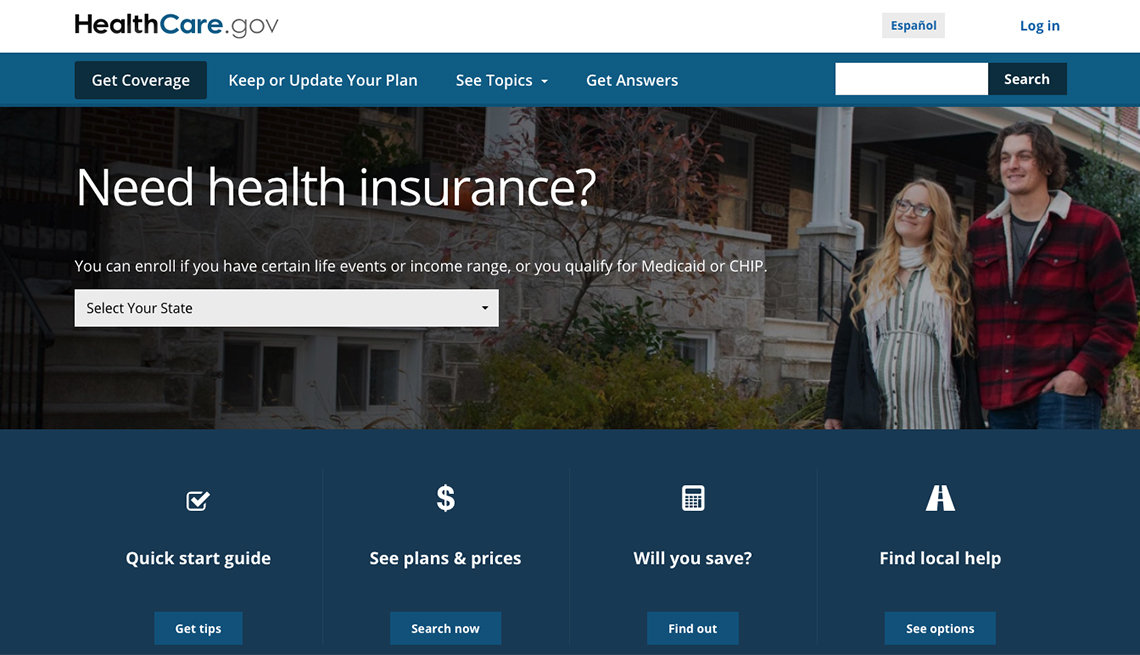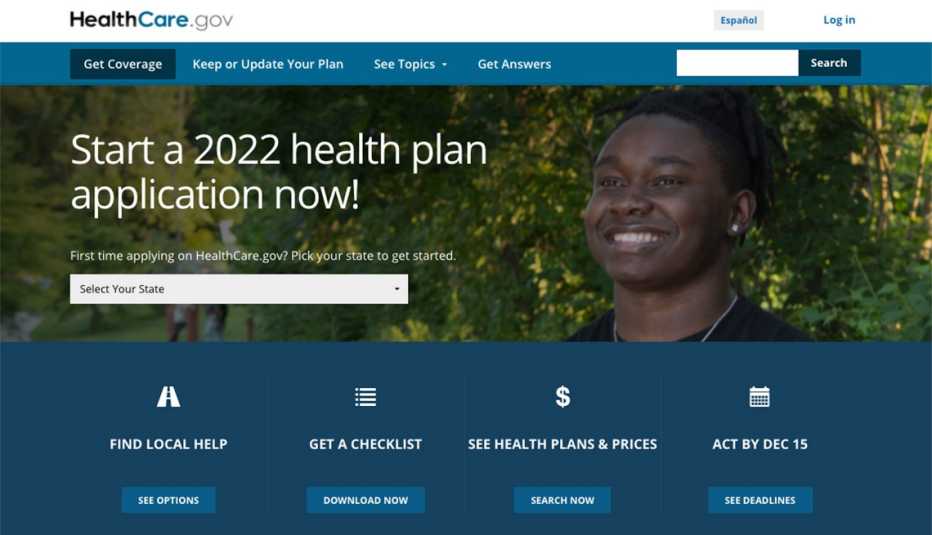Staying Fit
If you need health insurance and aren’t covered through your job or your spouse’s plan, or you’ve retired but are younger than 65 and not yet eligible for Medicare, it’s time to consider signing up for a plan under the Affordable Care Act (ACA).
Under the Inflation Reduction Act, the expansion of the ACA marketplace subsidies, first included in the 2021 American Rescue Plan, has been extended through 2025. This provision not only increases the ACA marketplace premium subsidies, making individual health insurance more affordable, but it also states that no one will have to pay more than 8.5 percent of their income for ACA health insurance.


AARP Membership— $12 for your first year when you sign up for Automatic Renewal
Get instant access to members-only products and hundreds of discounts, a free second membership, and a subscription to AARP the Magazine.
If you are already enrolled in a marketplace plan, it would be a good idea to review your coverage during the ACA's annual open enrollment period, which runs from Nov. 1, 2022 until January 15, 2023 for the federal marketplace and most state exchanges. Some states have a longer open enrollment period so best to check with your state to see when your deadline is for making changes.
Deciding what health insurance plan works for your health care needs and your budget can be complicated and daunting. Here’s a checklist of what you need to know about the ACA and what information you’ll need at your fingertips as you make your health plan decisions.
Understanding ACA coverage
All ACA plans are required to cover the same set of essential health benefits, such as hospital services, doctor visits, diagnostic tests, emergency room care and other vital services. All your preexisting conditions will be covered. The plans available through private insurance companies are organized by categories named for metals. Each category has a different combination of premiums, deductible and copays to meet varying health and financial needs.
Bronze
- Lowest monthly premiums
- Highest deductibles and copays
- Plans designed to cover you in case of serious sickness or injury
Silver
- Most popular plan category
- Moderate monthly premiums
- Moderate deductibles and copays
- Only plans in this category are eligible for cost-sharing subsidies
- Plans designed to trade a slightly higher monthly premium for more coverage of routine health care
Gold
- High monthly premiums
- Lower deductibles and copays
- Plans designed for people willing to trade higher monthly premiums for more coverage of routine care costs
How to Apply for ACA Health Coverage
Click here for the federal ACA marketplace or learn about your state exchange if you live in one of these 18 locations:
Platinum
- Highest monthly premium
- Lowest deductibles and copays
- Plans designed for those who need a lot of care and are willing to pay a very high premium
What are ACA subsidies?
Premium tax credit
- This tax credit lowers the monthly premium for those who qualify. How much you qualify for depends on your income. For 2021 and 2022, federal law says you will never have to pay more than 8.5% of your income for an ACA premium.
- If you qualify for a premium subsidy — or tax credit — the federal government will pay the amount of the tax credit you qualify for directly to your health plan and you'll pay your portion. Or, you can elect to pay the full premium and take the tax credit when you file your income taxes.
Cost-sharing subsidy
- If you qualify for a premium tax credit you may also be eligible for a cost-sharing reduction. This will help you pay for such out-of-pocket costs as deductibles and copays.
- You can get these savings only if you enroll in a silver plan — and you'll get a plan designed specifically for those who qualify for this additional financial assistance.
How do I qualify for a subsidy?
- Whether you qualify for a premium tax credit depends on the estimated household income you put on your application.
- This healthcare.gov calculator will let you know whether you are eligible for a subsidy and how much.
- Make sure to include yourself, your spouse and anyone else you claim as a dependent on your income taxes, even those who don't need coverage, when you estimate your subsidy.



































































